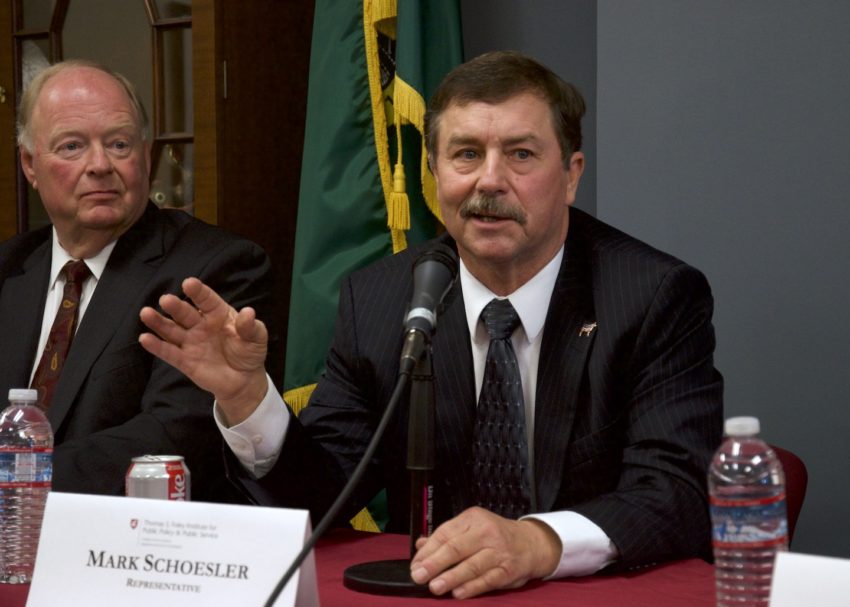State lawmakers representing Whitman County expect to take on transportation funding, affordable housing and transparency practices when the 2020 legislative session opens Monday.
State Reps. Mary Dye and Joe Schmick as well as state Sen. Mark Schoesler outlined several pending concerns during a forum last month on the WSU campus, touching on substance abuse treatment, gun control, education funding and other issues. Watch the entire discussion here.
“We have a new speaker in the House of Representatives for the first time in a long time,” Schmick noted. “We don’t know what her priorities are going to be. We don’t know the direction she will want to take us.”
Schoesler said lawmakers go into the session with $850 million in new revenue that should provide adequate funding for updates to the previous session’s budget. But he knows many programs will be competing for those dollars.
“I’ve never seen more money than asks,” he said.
Read Gov. Jay Inslee’s proposed 2020 budget in detail here, which would include millions in new spending on homelessness as well as delays to a wide variety of transportation projects.
The potential impact of Initiative 976 on state transportation spending dominated much of the discussion. Schoesler said he did not necessarily believe the initiative served as the best approach to managing transportation costs, but he understood the frustration over vehicle fees.
“Who’s listening to the taxpayer?” he asked, adding, “You can thank Sound Transit for getting (I-976) passed as much as anything. … Now we face the consequences.”
Dye said the delay in transportation projects could offer a valuable opportunity to evaluate how transportation funding is being spent and whether those dollars could be stretched farther with more local flexibility.
“The voters really asked us to be more frugal,” she said.
Schmick said he expects to again work on issues of mental health funding and support for critical access hospitals during the upcoming session. He noted hospitals in Pomeroy and Ritzville have struggled to find sustainable funding.
“We have got to figure out a model, so that we can provide healthcare to live in these rural areas,” he said. “That is extremely important. … These are real holes in our overall way of life.”
He also voiced concerns about the decline in volunteer staffing for rural firefighting and EMT services.
Pullman city officials released their legislative priorities last month, focusing on state support for downtown revitalization, opposition to I-976 and a larger share of liquor and marijuana taxes.
Read the City of Pullman’s legislative memo and priorities. Officials also seconded legislative priorities from the Association of Washington Cities.
The city also asked for amendments to the state Public Records Act to address abusive requestors who seek to overwhelm city resources with overly broad or repeat records request. (Read how to be a responsible and effective requestor here.)
State lawmakers may also grapple with their own transparency concerns following a recent state Supreme Court decision requiring the release of legislative records.
In addition to public records, representatives will also debate the use of title-only bills, which introduce legislation without providing the language up front. Multiple pre-filed bills would prohibit the practice.
Schoesler has prefilled one bill to make access to state parks and land free. Dye and Schmick have not prefilled anything at this time. Take a look at all the session’s prefiled bills here.
Party leaders, including Schoesler, will participate in a legislative preview with Associated Press reporter Rachel La Corte at 9 a.m. Thursday to discuss the major challenges and goals for the session. See the video below.
Read our post from last year’s session on other reporters and resources for following the session.
Correction: Legislative preview date corrected to Thursday.
